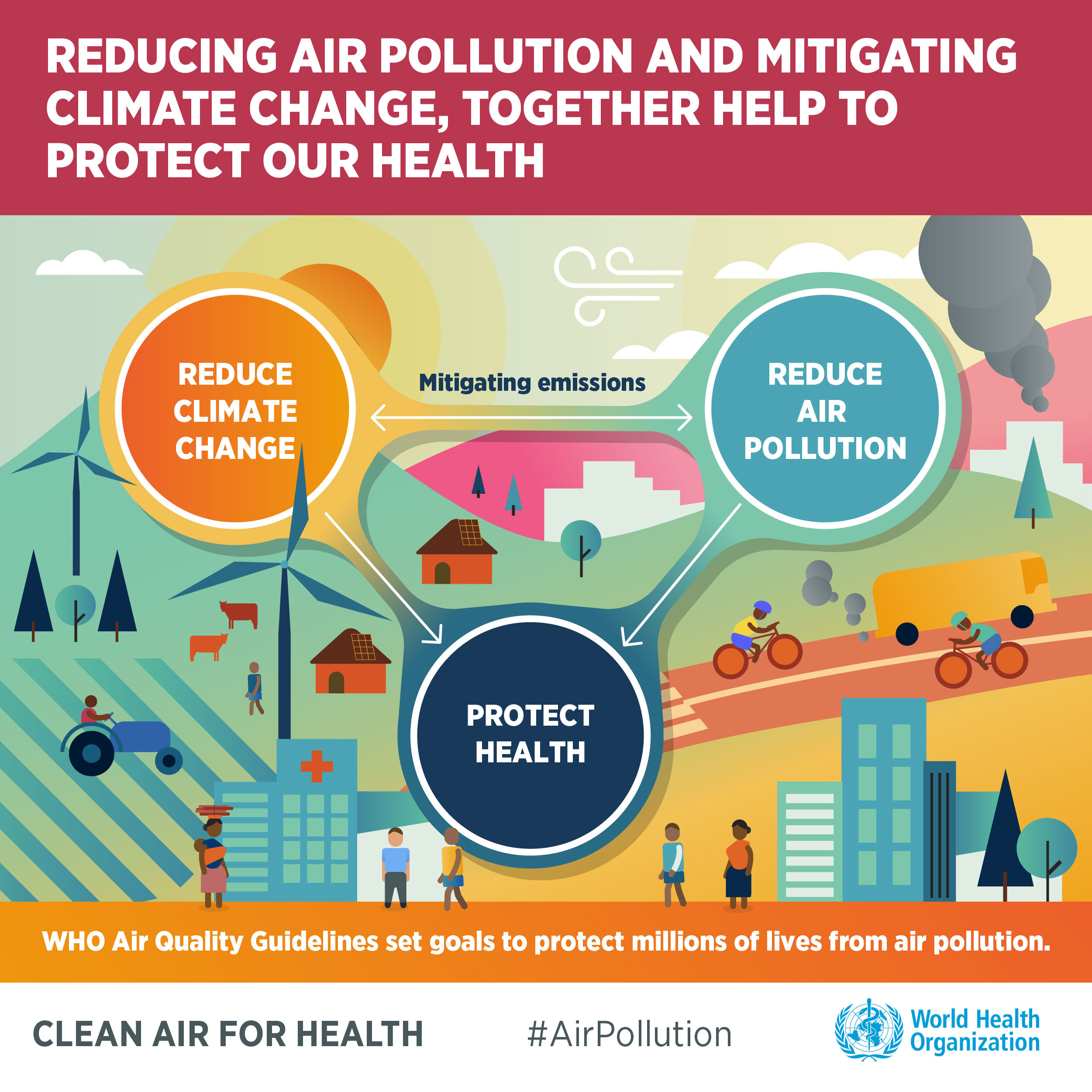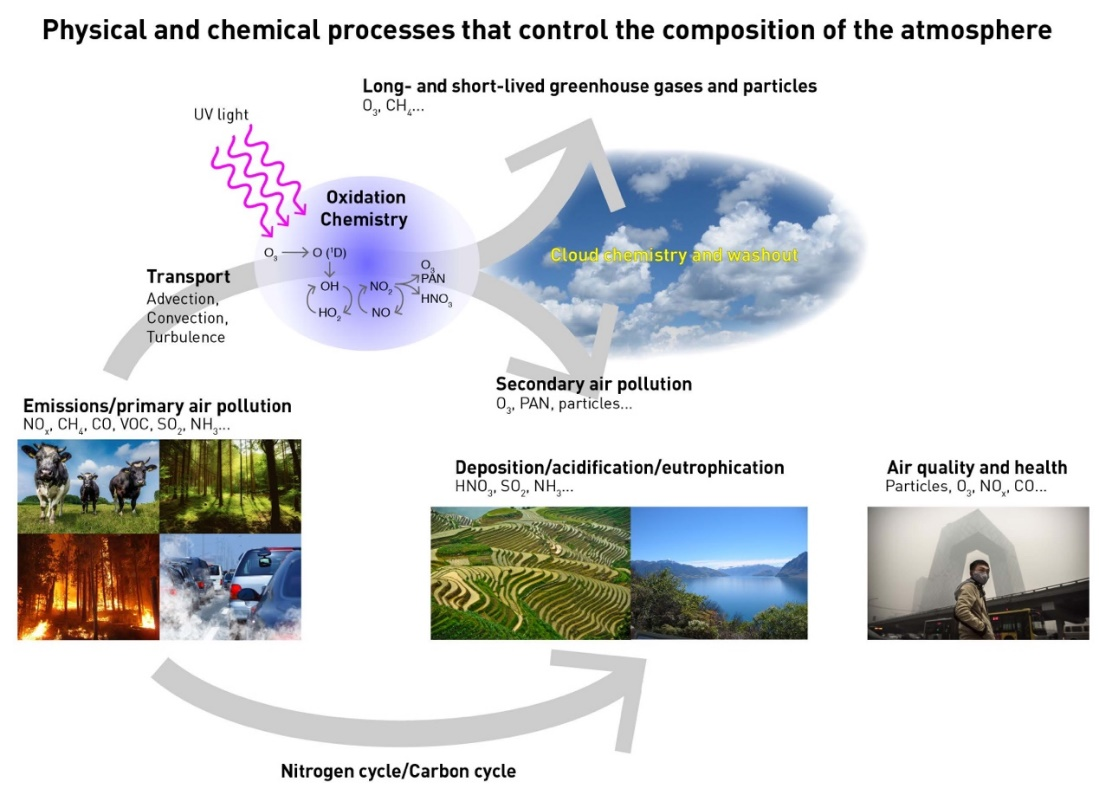In the face of growing health impacts from extreme weather, climate change and air pollution, the World Meteorological Organization (WMO) and World Health Organization (WHO) have agreed to step up joint action to tackle environmental health risks that cause an estimated 12.6 million premature deaths every year.
To advance the implementation of Collaboration Framework Agreement on Health, Climate and Environment through providing cross-cutting science perspectives based on the latest evidence and key progress globally, Peking University Professors Zhu Tong and his team called a gathering of international research programs and networks to promote a collaborative study on AiR -Climate -Health (ARCH) Nexus issue during the Sustainability Research & Innovation Congress (SRI) 2022 online and onsite in Pretoria, South Africa.
SRI is the world’s largest transdisciplinary gathering for the global sustainability community,
which unites more than 2000 global sustainability research leaders, government and civil society experts, funders and innovators to inspire action and promote a sustainability transformation. Source: Future Earth
Source: Future Earth
The thematic session on AiR Pollution - Climate Change - Health Effects Nexus was a joint effort of Global Atmosphere Watch (GAW) Programme of the WMO and Monsoon Asia Integrated Research for Sustainability - Future Earth, supported by the AiR-Climate-Health (ARCH) Integrated Study and Exchange Platform of Peking University.
The session was chaired by Prof. Zhu Tong from College of Environmental Sciences and Engineering, Peking University, including four presentations and an interactive and fruitful panel discussion. In the session, the highlights of the cutting-edge research findings in related fields were presented. Moreover, next-step collaboration was discussed, such as the establishment of a joint working group and developing Air-Climate-Health Science Insights Reports.

Source: WHO
Prof. Lidia Morawska from School of Earth and Atmospheric Sciences, Queensland University of Technology in Australia, who is also leading WHO Collaborative Center on Air Quality and Health, shared her recent research on health effects due to exposure to air pollution. She emphasized that not only exposure to high levels of pollution reduced life expectancy, but also to low levels. And the termination of air pollution must be achieved through the transition to clean energy.
Dr. Oksana Tarasova, Head of the Atmospheric Environment Research Division from WMO and the Chief of the GAW Programme, introduced the GAW Programme and their recent findings on the global observations and analysis of the atmospheric chemical composition changes. She mentioned that atmospheric composition was poorly monitored in many parts of the world. Therefore, GAW is building a global station information system in support of environmental conventions and services and calls for strengthened data sharing.
Prof. Greg Carmichael from the University of Iowa, Chair of Scientific Steering Committee of WMO-GAQ, shared his work on air quality forecast inter-comparison and experiences on the improvement of simulation modeling related to air quality and its environmental impacts. He emphasized in his report the importance of bringing research findings and information together in transmitting science into policies.

Source: WMO-GAW
Sean Khan from the United Nations Environment Programme (UNEP), manager of the Global Environment Monitoring Systems for Air (GEMS Air) project, shared UNEP’s work on advocating for the use of low-cost monitoring devices and other emerging technologies to fill the data gap in developing countries. He revealed that only ~33% of countries imposed obligations to meet legislatively mandated Ambient Air quality Standards, while about ~75% of countries had no air quality management strategy or continuous monitoring data of air pollution. Hence, the joint efforts of all stakeholders are greatly needed for the global promotion and practice of pollution control policies to protect the public health.
During the panel discussion at the end of the session, participating scientists and project officers have reached a consensus on the action points:
- Strengthen the exchange and collaboration across air, climate, and health research fields, facilitate dialogues between related international organizations (WHO, WMO, UNE) and local authorities;
- Link the above stakeholders, design, and implement studies based on policy and intervention needs;
- Make good use of high-resolution data and innovative approaches to sustain and strengthen the research and keep voices on the related topics; and
- Develop papers and reports to share insights and perspectives from research community through multi outreach channels targeting the audience beyond scientist based on the research findings.
In collaboration with several leading academic institutions including Fudan University, Chinese Center for Disease Control and Prevention, Chinese Academy of Environmental Sciences with support of Energy Foundation China, the Peking University team currently has been putting a great effort to establish the ARCH platform to take early steps in China with aims to provide experiences from pilot studies and to scale up from regional to global. A preparatory working group was gathered to support the initial consultation of working plan and trial implementation. A kick-off ceremony of ARCH will be soon organized on 25th August 2022 in Beijing.
